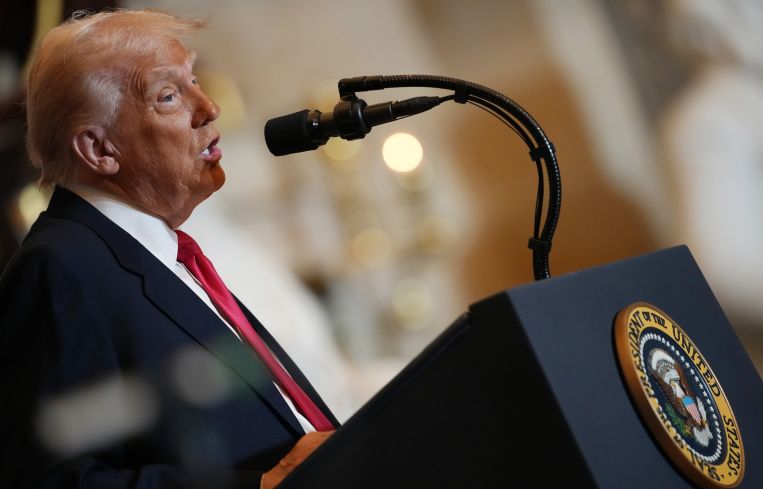Judge Pauses Trump’s Federal Workforce Resignation Deadline
The judge halted Thursday’s deadline until he could review a lawsuit challenging the buyout program affecting about 2.3 million employees
By Nick Trombola February 6, 2025 7:35 pm
reprints
The Trump administration’s effort to cut the size and footprint of the federal government has hit a snag ahead of the Thursday night deadline for a federal workforce-wide voluntary buyout offer.
A federal judge for the District of Massachusetts, George O’Toole Jr., ordered a halt to the buyout program until Monday, when he could review a lawsuit filed earlier this week by three federal unions representing hundreds of thousands of government workers. The Trump administration announced the program Jan. 28, with an original deadline of 11:59 p.m. ET on Thursday.
“We continue to believe this program violates the law, and we will continue to aggressively defend our members’ rights,” said Everett Kelley, national president of the American Federation of Government Employees union, which filed the lawsuit alongside the American Federation of State, County and Municipal Employees and the National Association of Government Employees unions.
The Trump administration’s buyout announcement, which came with the headline “Fork in the Road,” offered full pay and benefits until Sept. 30 for most of the 2.3 million federal employees if they resigned by Thursday night. For those who don’t voluntarily resign, the administration is reportedly planning mass layoffs set to begin soon after the resignation deadline passes, according to CNN, citing confidential sources. That could include thousands of federal health workers, per the Wall Street Journal, and thousands more from the U.S. Agency for International Development (USAID), which has already experienced a wide-scale dismantling in recent days.
More than 60,000 federal workers had accepted the deferred resignation offer prior to Judge O’Toole’s pause, according to Reuters, though the figure falls well below the White House’s target of 5 to 10 percent of federal workers eligible for the program.

Karoline Leavitt, White House press secretary, told reporters Thursday that the administration was “grateful” for the extension so that more employees could have the chance to accept the “very generous, once-in-a-lifetime offer.”
“It’s going to save the American people tens of millions of dollars,” Leavitt said. “If they don’t want to show up to the office, if they want to rip the American people off, then they’re welcome to take this buyout, and we’ll find highly competent individuals who want to fill these roles.”
The administration’s aggressive pursuit of federal downsizing, on multiple fronts, began shortly after Trump took office. In January, Trump signed an executive order mandating return-to-office moves for workers within the executive branch — with the stated goal of coercing many of them to quit their posts — as well as an order reinstating a policy known as Schedule F that weakens civil service job protections and a hiring freeze.
The administration also aims to ratchet up the General Service Administration’s policy of downsizing the federal real estate portfolio, a process already begun by Elon Musk’s Department of Government Efficiency (DOGE). The administration is reportedly considering selling off two-thirds of the government’s owned space, and as much as three-fourths of its leased space in Washington, D.C., though an exact schedule for those supposed cuts isn’t yet clear. Still, more than a third of all government leases are eligible for termination by the end of Trump’s term in 2028, accounting for some 53 million square feet and $1.87 billion in annual rent cost.
DOGE has also been busy, posting on X on Sunday night that 22 federal leases, accounting for $44.6 million in annual cost, had been cut. The nongovernmental agency did not say specifically which leases had been cut.
Nick Trombola can be reached at ntrombola@commercialobserver.com.



